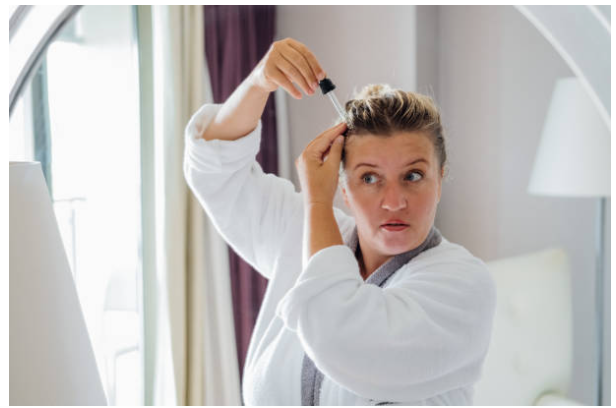
In the realm of hair care, the quest for the perfect solution to repair damaged hair has led to the emergence of various products, with hair serums claiming to be a potent remedy. These serums often promise to restore vitality, shine, and strength to hair that has been subjected to damage from styling, environmental factors, or chemical treatments. However, the effectiveness of these serums in repairing damaged hair is a subject of debate among both consumers and experts.
In this exploration, we delve into the science behind hair serums to determine if they can genuinely revive and repair damaged strands.
Understanding Hair Damage
Before delving into the efficacy of hair serums, it’s crucial to understand the various factors that contribute to hair damage. Hair can undergo damage due to exposure to UV rays, excessive heat from styling tools, chemical treatments like coloring or perming, and environmental factors such as pollution and harsh weather conditions. Additionally, poor hair care practices, like using harsh shampoos and overwashing, can contribute to weakened and damaged strands. The extent of damage varies, ranging from split ends and breakage to overall loss of shine and elasticity.
Ingredients in The Best Hair Serums
The efficacy of hair serums lies in their meticulously chosen ingredients, carefully curated to address a spectrum of hair concerns and provide optimal nourishment. Arguably, the cornerstone of many quality serums is the inclusion of natural oils renowned for their conditioning properties. Argan oil, celebrated for its rich vitamin E content, deeply moisturizes and imparts shine, while jojoba oil mimics the scalp’s natural oils, promoting overall hair health.
Vitamins play a pivotal role in fortifying hair structures within these serums. Vitamin E acts as a potent antioxidant, shielding hair from environmental damage, and biotin supports strength and resilience. Additionally, keratin, a protein fundamental to hair composition, is often incorporated to aid in structural repair, reducing breakage and enhancing hair elasticity.
Silicones, though controversial, are frequently found in serums due to their ability to create a protective coating, smoothing the hair cuticle and imparting a glossy finish. Amino acids contribute to the overall strength and health of the hair shaft, promoting vitality and minimizing frizz.
As consumers increasingly seek products aligned with natural and sustainable trends, the best hair serums strive to balance efficacy with mindful ingredient choices, catering to diverse hair types and concerns.
Hydration and Moisture Retention
One of the primary functions of hair serums is to hydrate and moisturize the hair. Damaged hair often lacks moisture, leading to dryness and increased vulnerability to breakage. Quality serums aim to restore the moisture balance by preventing water loss from the hair shaft. Ingredients like hyaluronic acid and glycerin are known for their hydrating properties, helping to maintain the hair’s natural moisture levels.
Repairing the Cuticle
The hair cuticle, the outermost layer of the hair shaft, plays a crucial role in protecting the inner layers. Damage often results in raised or damaged cuticles, leading to a rough and dull appearance. Some hair serums claim to repair and smooth the cuticle, enhancing the overall texture and shine of the hair. Ingredients like silicones and amino acids are thought to contribute to cuticle repair, creating a protective barrier against environmental stressors.
Strengthening and Nourishing
To address the issue of weakened hair, serums often contain ingredients that claim to strengthen and nourish the strands. Proteins like keratin, biotin, and amino acids are commonly included to fortify the hair structure. These components are believed to help reduce breakage and enhance the overall resilience of damaged hair.
The Limitations of Hair Serums
While hair serums can offer noticeable improvements in the texture and appearance of damaged hair, it’s important to acknowledge their limitations. Not all serums are created equal, and individual results may vary based on the severity and type of hair damage. Moreover, the temporary nature of many serum effects means that consistent use is often necessary to maintain results.
Conclusion
In the pursuit of repairing damaged hair, the use of hair serums can be a valuable component of a comprehensive hair care routine. The science behind these serums suggests that their key ingredients aim to address specific aspects of damage, including hydration, cuticle repair, and strengthening. However, it’s crucial to manage expectations, as no single product can fully reverse severe damage. Effective hair care requires a holistic approach that includes regular trims, gentle washing practices, and protection from environmental stressors.
Ultimately, while hair serums may not perform miracles, they can contribute to healthier-looking hair when used as part of a well-rounded care regimen. As with any beauty product, individual results may vary, and it’s advisable to choose serums based on hair type, specific concerns, and ingredient preferences.
